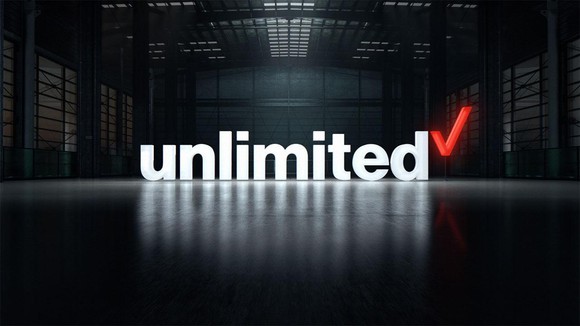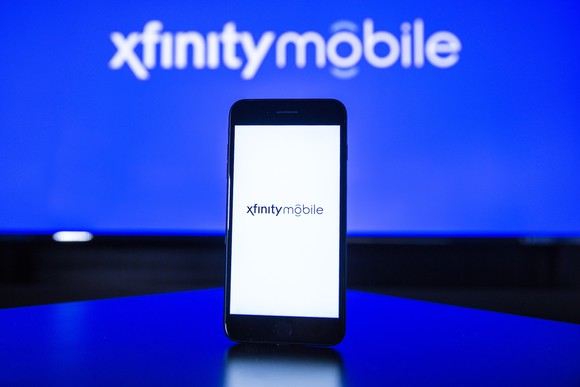I bought shares of Verizon Communications (NYSE:VZ) in April 2016, and since then the stock has gone up and come right back down. If you include dividends, I'm about even on my investment. I'm holding onto my shares, expecting a return to strong earnings growth in the long term, with a steadily rising dividend to boot.
Still, there's a good bear case to be made as Verizon confronts fierce competition from T-Mobile(NASDAQ:TMUS) Sprint (NYSE:S). Here are the challenges I see facing Verizon, and how they could negatively impact the company in a manner worse than I originally anticipated.

IMAGE SOURCE: VERIZON.
Pricing pressure is getting worse
Verizon has faced pricing pressure from T-Mobile and Sprint for several years now. That pressure is getting worse as T-Mobile's network continues to improve. T-Mobile boasts that its network will soon offer coverage on par with Verizon's after it's able to deploy the low-band spectrum it won at auction earlier this year. With an unlimited plan priced below Verizon's, T-Mobile presents great value to consumers.
The introduction of unlimited plans by T-Mobile and Sprint last fall prompted Verizon to launch its own unlimited plan, as it faced tons of customer losses. While the new plan has helped Verizon keep customers in place, it's also having a negative impact on its service revenue. The first switchers to come on board with unlimited are those that stand to save money by switching. Management says it expects the pressure on its service revenue to mitigate by the second half of the year.
But the competition keeps launching salvos. Most recently, Sprint started offering a free year of its unlimited data plan to customers that switch from one of the other three major wireless carriers. The promotion specifically targets Verizon customers, with more eligible devices for customers switching from Verizon than AT&T or T-Mobile.
What if Sprint and T-Mobile don't merge?
This price war can't go on forever, can it? Many analysts expect Sprint and T-Mobile will either merge or one or both will get acquired. Either situation would theoretically reduce pricing pressure as the businesses start to focus on cash flow instead of customer acquisition at any cost.
But Sprint's recent promotion (free service for a year) makes it hard for Sprint and T-Mobile to plead a case to the FCC that the current state of competitive intensity is unsustainable without the scale of a combined Sprint and T-Mobile.
While both are reportedly in talks with one another to merge, a lack of a merger means we could see the fierce competitive environment continue on indefinitely. That would put pressure on Verizon's pricing and its ability to attract subscribers.

IMAGE SOURCE: COMCAST.
Some big new competitors are entering the market
Both Comcast (NASDAQ:CMCSA) and Charter Communications (NASDAQ:CHTR) are entering the wireless market with their own MVNO services. Ironically, both are relying on a pre-established agreement with Verizon to use its network wholesale.
Comcast's Xfinity Mobile product indicates it's mostly looking to use mobile as a way to reduce churn of its video and internet subscribers. Charter will likely adopt a similar strategy, and it's agreed to work in partnership with Comcast to develop best practices and work on research and development.
But as more people cut the cord, Comcast and Charter could become more competitive in wireless. While Verizon is in a better position than its competitors considering its network is underlying Charter's and Comcast's, it would still effectively be trading retail customers for lower-value wholesale customers.
What's more, Comcast has expressed interest in launching its own wireless network, having purchased some 600 MHz spectrum at auction earlier this year. That could be the first of several moves that allows Comcast to ditch Verizon and go whole-hog in wireless down the road.
Can Verizon survive extended competitive pressure?
My investment thesis for Verizon is that it has the brand and network strength to survive the current competitive environment. More importantly, the current competitive environment is unsustainable, as T-Mobile and Sprint will eventually feel pressure from shareholders or potential acquirers to generate meaningful cash flow. However, it seems like every month there's a new promotion that continues to escalate the pressure on Verizon.
Verizon's switch to an unlimited plan is paying off for now, with improved trends in the number of subscribers it's losing to competitors. But it's coming at the cost of its average revenue per subscriber. As T-Mobile's network continues to improve, and both it and Sprint make increasingly aggressive offers to attract subscribers, it may not be long before Verizon has to take further steps or risk losing subscribers again. Either way, it's bad news for Verizon shareholders.
Without a significant change in the status of the wireless industry -- an acquisition, merger, or complete financial breakdown -- Verizon could see a continuation of the current downward trend in earnings and revenue. The longer it goes on like this, the worse it gets for Verizon, and the bigger the hole it has to climb out of when competition eventually eases (if it ever does).
10 stocks we like better than Verizon Communications
When investing geniuses David and Tom Gardner have a stock tip, it can pay to listen. After all, the newsletter they have run for over a decade, Motley Fool Stock Advisor, has tripled the market.*
David and Tom just revealed what they believe are the ten best stocks for investors to buy right now… and Verizon Communications wasn't one of them! That's right -- they think these 10 stocks are even better buys.















